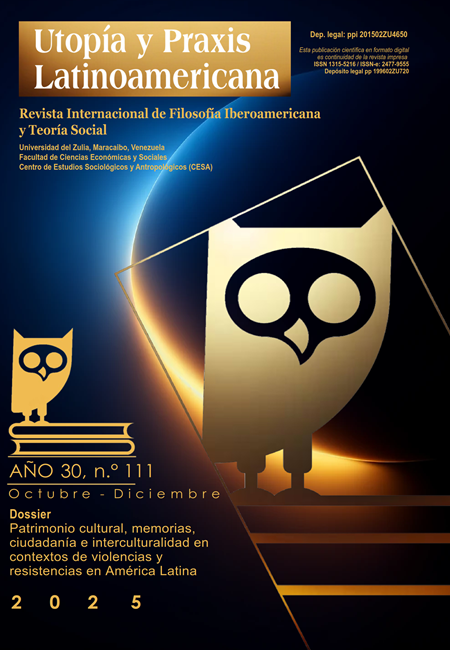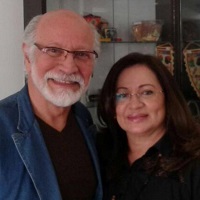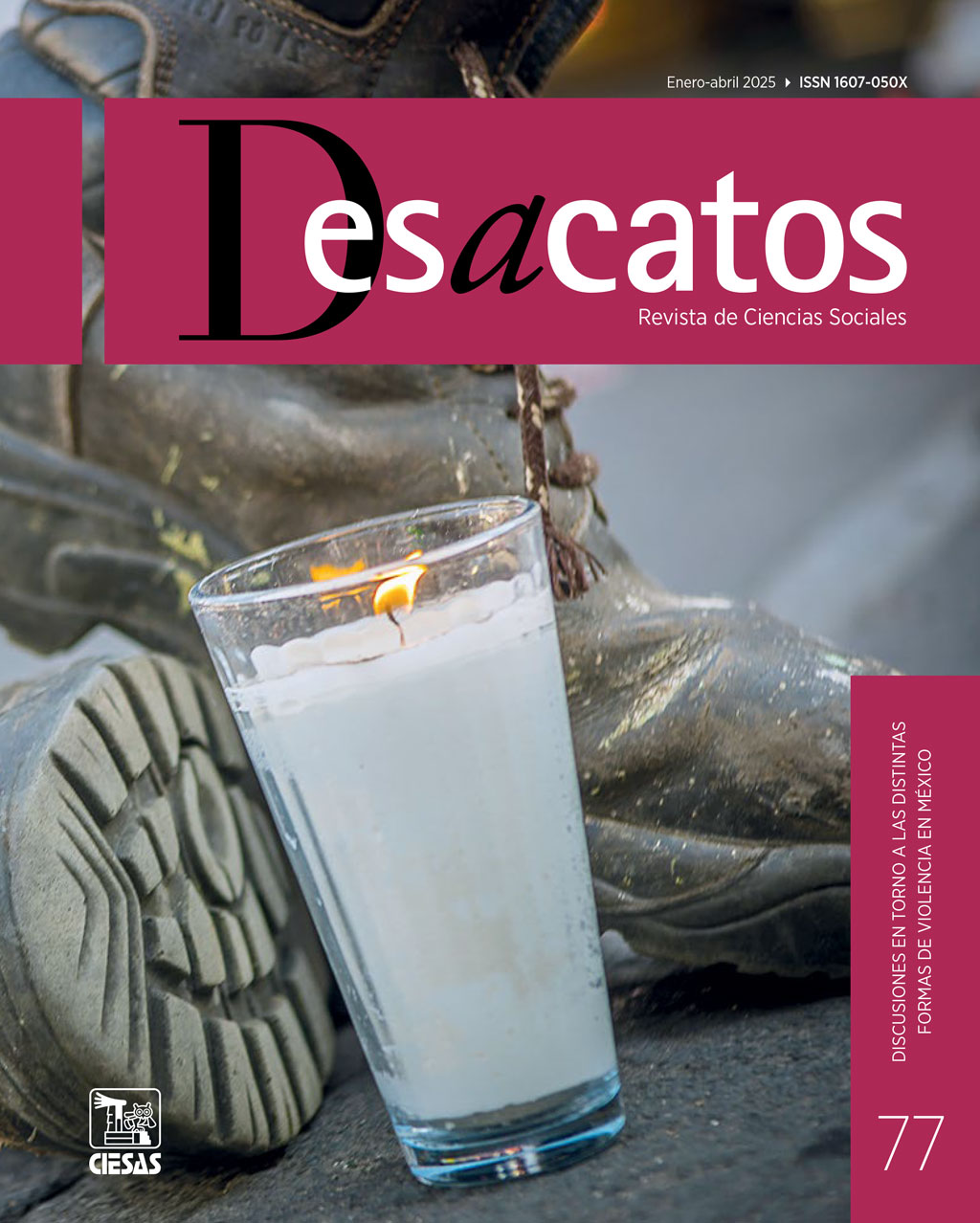Memory, citizenship, exile, and human rights in Latin America: from the Chilean coup d’état to the 43 of Ayotzinapa. The struggle against oblivion (1973–2025)
Abstract
This article examines memory as a field of political, cultural, and ethical struggle in Latin America between 1973 and 2025, linking it to citizenship, exile, postmemory, and human rights activism. Drawing on key authors such as Jelin, Nora, Sarlo, Hirsch, and Ricoeur, it argues that memory is an active social practice that confronts institutional oblivion, reinterprets the past, and acts upon the present. The analysis includes emblematic cases such as the Memory, Truth and Justice process in Argentina, the Truth Commission in Peru, and the Ayotzinapa case in Mexico, highlighting how memory connects to collective action, critical pedagogy, and transnational networks. Exile is approached as a space for political reorganization and circulation of ideas, while the role of new generations in building counter-hegemonic narratives is also addressed. Finally, the article warns about the impact of neoliberalism on the erosion of rights and the depoliticization of memory. It concludes that memory is an essential ethical and political horizon for strengthening inclusive democracies and combating impunity.
References
COOPER, F. (2019). Ciudadanía, desigualdad y diferencia. Una perspectiva histórica. Crítica.
COOPER, F. (2019). Ciudadanía, desigualdad y diferencia. Una perspectiva histórica. CRÍTICA.
ESCALANTE, F. (1999). Ciudadanos imaginarios. El Colegio de México.
ESCALANTE, F. (1999). Ciudadanos imaginarios. El Colegio de México.
ESCALANTE, F. (2019). El neoliberalismo. Historia mínima. El Colegio de México.
ESCALANTE, F. (2019). El neoliberalismo. Historia mínima. El Colegio de México.
FORTI, S. (2024). Democracias en extinción. Akal.
FORTI, S. (2024). Democracias en extinción. El espectro de las autocracias electorales. Akal.
GÁLVEZ, A., & LUQUE-BRAZÁN, J. (2019). Capitalismo de chupacabras en una era post-política y post-migratoria. Huellas de la Migración, 4(7), 109–138. https://doi.org/10.36677/hmigracion.v4i7.11945
GAMIÑO, R. (2020). Los orígenes de la "verdad histórica". Relaciones, 41(161), 1–25.
GAMIÑO, R. (2020). Los orígenes de la “verdad histórica”. Relaciones. Estudios de historia y sociedad, 41(161), 1–25. https://doi.org/10.24901/rehs.v40i161.662
GIMÉNEZ, G. (2009). Identidades sociales. IIS-UNAM.
GIMÉNEZ, G. (2009). Identidades sociales. IIS-UNAM.
HIRSCH, M. (1997). Family Frames. Harvard University Press.
HIRSCH, M. (1997). Family Frames: Photography, Narrative, and Postmemory. Harvard University Press.
HIRSCH, M. (2012). The Generation of Postmemory. Columbia University Press.
HIRSCH, M. (2012). The Generation of Postmemory: Writing and Visual Culture After the Holocaust. Columbia University Press.
https://latinoamericanos.posgrado.unam.mx/plandeestudios/archivos/ProgramasCursos/20161/SeminariosOptativosMonograficos/C.5.Begona/SEMINARIO%20Memoria.%20Latinoamericanos.%20Pulido.pdf
HUYSSEN, A. (1986). After the Great Divide: Modernism, Mass Culture, Postmodernism. Indiana University Press.
INFORME DE LA COMISIÓN DE LA VERDAD Y RECONCILIACIÓN EN EL PERÚ. (2003).
INFORME SOBRE EL PROCESO DE MEMORIA, VERDAD Y JUSTICIA EN ARGENTINA. (2017).
JELIN, E. (2002). Los trabajos de la memoria. Siglo XXI Editores.
JELIN, E. (2002). Los trabajos de la memoria. Siglo XXI.
JELIN, E., Motta, R., & Costa, S. (2021). Repensar las desigualdades. Siglo XXI Editores.
KOHUT, K. (2009). Literatura y memoria. Revista del CESLA, 12, 25–40.
LAZZARA, M. (2021). El giro de la memoria en América Latina. CLACSO. https://www.jstor.org/stable/j.ctv2v88dft.5
LAZZARA, M. (2021). El giro de la memoria en América Latina. CLACSO.
Nora, P. (1992). “L'ère de la commémoration”. Les lieux de mémoire, t. III, vol. 3. Gallimard.
Nora, P. (1992). Les lieux de mémoire. Gallimard.
O'DONNELL, G. (2007). Disonancias. Críticas democráticas a la democracia. Prometeo.
O'DONNELL, G. (2010). Democracia, agencia y Estado. Prometeo.
PLEHWE, D., SLOBODIAN, Q., & Mirowski, P. (2025). Las siete vidas del neoliberalismo. FCE.
PULIDO, B. (s/a). Memoria, Historia y Narración en la Literatura Latinoamericana (Seminario). UNAM.
RICOEUR, P. (2000). La mémoire, l’histoire, l’oubli. Seuil.
RONIGER, L. (2016). Historia mínima de los derechos humanos. El Colegio de México.
ROVIRA, C. (2024). La ultraderecha en América Latina. Nueva Sociedad, 312.
RUIZ, J. (2019). Fosas clandestinas. Historia y grafía, (52), 97–128.
SABAN, K. (2020). De la memoria cultural. Revista chilena de literatura, (101), 379–404.
SARLO, B. (2006). Tiempo pasado. Siglo XXI.
SEYDEl, U. (2020). Memoria y tecnologías digitales. Perfiles latinoamericanos, 28(56), 35–65.
VELASCO, D. (2017). Ayotzinapa. Espiral, 24(70), 265–271.
VELASCO, D. (2017). Ayotzinapa. La incansable lucha por la verdad, la justicia y la vida. Espiral (Guadalajara), 24(70), 265–271. http://www.scielo.org.mx/scielo.php?script=sci_arttext&pid=S1665-05652017000300265










